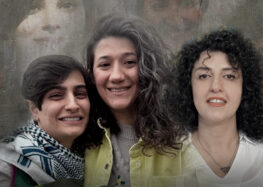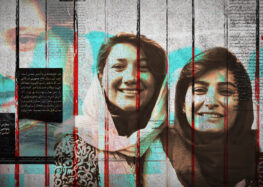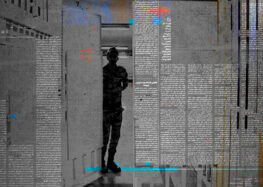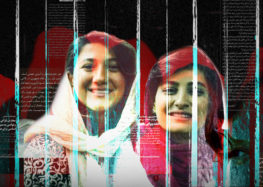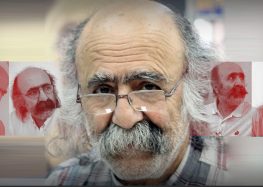Imprisoned Journalist Hamed Aynehvand Denied Right to Post Bail in Iran
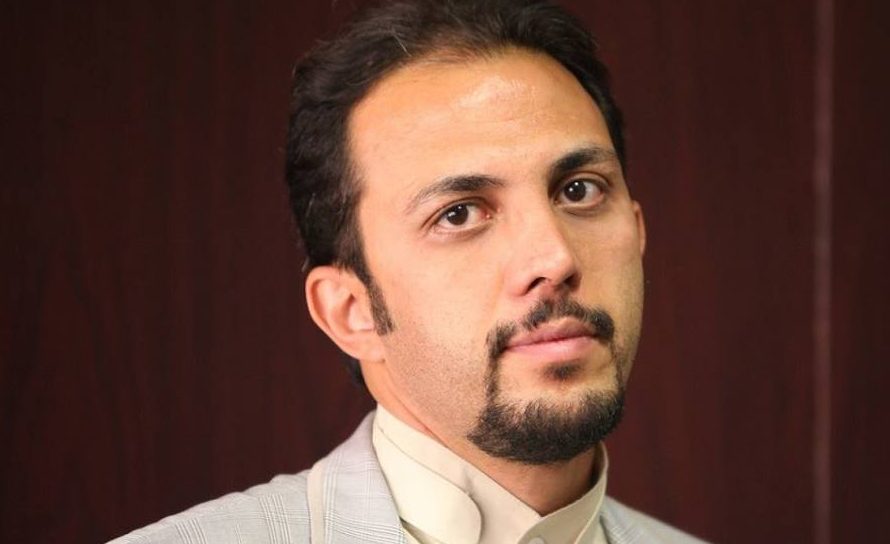
Aynehvand Denied Legal Counsel by Hardline Judge Mohammad Moghiseh
Judicial officials in Evin Prison in Tehran are illegally preventing the release of political journalist Hamed Aynehvand by falsely claiming he has insufficient funds to post bail.
Aynehvand, who was denied access to counsel during his trial, is awaiting a decision on his appeal against his six-year prison sentence issued in December 2018 for the charges of “propaganda against the state” and “assembly and collusion against national security.”
“Bail was set at 50 million tomans [approximately $10,423 USD in June 2018] but the court order says he can’t afford it, which is untrue because my client can easily pay it,” Aynehvand’s attorney, Hossein Bayat, told the Center for Human Rights in Iran (CHRI) on February 5, 2019.
Aynehvand was told he could post bail shortly after being arrested by agents the Islamic Revolutionary Guard Corps’ Intelligence Organization on June 28, 2018.
“He could have been free until the final decision by the Appeals Court but instead he’s behind bars,” Bayat said. “I have tried numerous times to get him out on bail but that hasn’t happened.”
Emphasizing his client’s innocence, Bayat expressed hope that the harsh sentence would be thrown out especially given the fact that the judge had not allowed him to be present during the preliminary trial.
“Judge [Mohammad] Moghiseh did not recognize my legal representation because he said I did not have a financial contract with my client, an excuse which has no legal, religious or ethical justification,” Bayat said.
The attorney continued: “That was Hamed’s only chance to be defended by a lawyer in court but the judge took away his right… I think the intention was to prevent a fair trial otherwise why would they not want his lawyer to be there? In my opinion, rulings by such a court cannot be valid.”
Rejecting the charges against Aynehvand, Bayat said: “Hamed has been found guilty of ‘propaganda against the state’ and ‘assembly and collusion against national security’ but the basis of the charges are his articles published and republished online by sites such as Amad News and Gooya News.”
He added: “But criticism, even harsh criticism, is not propaganda against the state. In a democratic and people-based system, which the Islamic Republic claims to be, criticism should not be suppressed but instead encouraged. Criticism is a necessity for a democratic society.”
As for the second charge that was brought on the basis of some of Aynehvand’s private online chats, Bayat noted: “Hamed did not do anything that would constitute ‘assembly and collusion against national security.’ He has not had any communication that would be considered criminal. He cannot be convicted of a crime against national security on the basis of his private chats. His private chats were private.”
Aynehvand’s analytical articles on Iran’s political and judicial affairs have been published by several media outlets in Iran, including the government newspaper, Iran, and news sites based abroad such as Iran Global, Zeitoon as well as Gooya and Amad News.
During Iran’s 2016 parliamentary elections, Aynehvand registered to become a candidate in his hometown, Tuyserkan, Hamadan Province but was disqualified by the Guardian Council.

